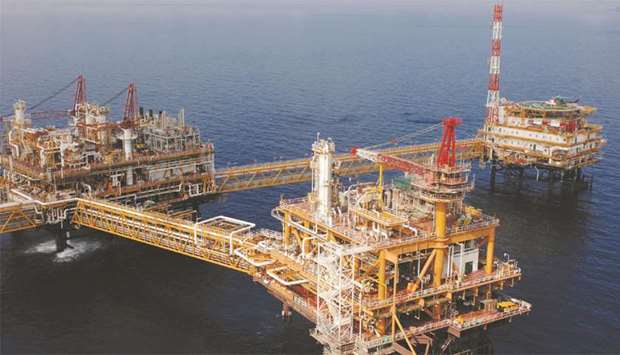Qatar has shaken off the initial negative impacts of the blockade and appears to have fully adjusted to the need to change supply chains and logistical arrangements, according to Capital Intelligence, an international credit rating agency.
"The general picture is of a return to normality," CI said in a report.
Historical trading and family links have been hit. Nevertheless, part of the response has been legal and regulatory changes that are making Qatar a much more open economy – and this is encouraging inward investment into the private sector, the rating agency said.
"With oil prices having stabilised and the spot gas markets hardening, government revenues have exceeded earlier expectations," CI said, adding as long as the global economy (and in particular China) continues to grow, demand for natural gas will continue its rapid climb (and in consequence, will offset the additional supply that has come on-stream from, in particular, Australia).
Although the government is expected to maintain its ‘value-for-money’ attitude to infrastructure spending, it will continue to spend, if necessary, by drawing on reserves and/or by borrowing to bridge expected budget deficits, the CI report said.
Highlighting that the Qatari government has also announced a major expansion project for gas production, it said this will begin in 2019 and add to output in 2022, reaching full capacity in 2024.
"This should allow strong growth in the private and non-hydrocarbon sectors of the economy to continue," CI said.
The country's hydrocarbon major Qatar Petroleum (QP) had announced the lifting of moratorium on the North Field, following which a plan was unveiled to develop a new gas project with a capacity of 2bn cubic feet per day.
The proposed project in the southern sector of the North Field is expected to enhance the current production of the North Field by about 10%, which would add about 400,000 bpd of oil equivalent to Qatar’s production.
In this regard, HE Abdullah bin Hamad al-Attiyah, chairman of the Al-Attiyah Foundation had said the lifting of the moratorium on Qatar’s North Field and the strategic goal to raise liquefaction capacity by almost 30% to 100 Mtpa is the right answer for the country to compete in global gas markets.
The London Stock Exchange-listed Qatar Investment Fund had viewed that Qatar's renewed gas development at the North Field could give it a competitive edge after 2020, when the global LNG market is expected to tighten. Qatar’s low-cost base gives it a competitive advantage over other established LNG suppliers, it added.
Another global credit rating agency Standard & Poor's had said Qatar has one of the lowest costs of natural gas production at $1.6 to $2 per million British Thermal Units, and hence state-owned QP – responsible for all phases of the oil and gas industry in Qatar – is expected to remain "profitable."

